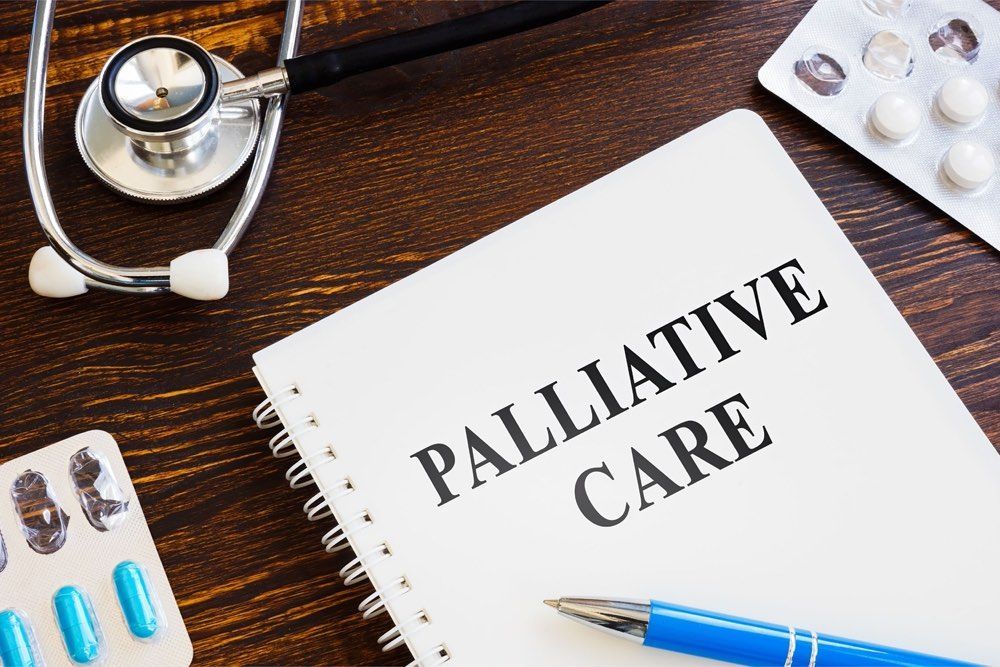What is Hospice Care?
Many people have misconceptions about hospice care, but it provides many benefits to help patients and family members through a difficult time; however, it does not replace in-home care.
Sometimes, people are reluctant to suggest hospice care because they see it as a sign that they are giving up. Some wait for their physician to recommend hospice care, but the sooner you initiate it, the more benefits you'll see. You can always ask your physician about hospice care.
What is and isn't Hospice Care?
Hospice care addresses the physical, social, emotional, and spiritual needs of patients – regardless of age - with a prognosis of six months or less, and a cure is not a viable option. That can include individuals with Alzheimer's, ALS, cancer, stroke, liver disease, or any other terminal illness. In 2020, 1.5 million patients were under hospice care, according to the Centers for Disease Control and Prevention (CDC).
Hospice care is provided by an interdisciplinary team of professionals, such as a hospice physician, nurse, home health aide, chaplain or spiritual adviser, and medical social worker. The top priority of hospice is to help the patient, family, and unpaid caregivers by providing person-centered care. The focus is on managing symptoms, providing emotional and spiritual support, and providing psychosocial intervention.
Typically, the hospice team visits the patient's home or a home-like setting, such as an assisted living center, long-term care facility, or sometimes, in a hospital. They visit periodically and are available 24/7 when issues arise; however, hospice care is not a replacement for regular day-to-day care of a patient.
It's also crucial to understand what hospice care is NOT:
- Focused on curative therapies or medical interventions meant to prolong life
- A replacement for a caregiver
- 24/7 care
- Designed to hasten death.
Sometimes, patients and family members are not immediately aware that hospice care is an option. Typically, hospice begins with a referral from an attending physician, but self and family referral is possible if a physician can confirm eligibility. Don't wait for your physician to suggest hospice care if you feel it would be beneficial.
If the patient meets specific medical eligibility criteria, hospice care is covered by Medicare, and most private health insurance offers some hospice benefits.
What Services are Included in Hospice Care?
The services included in hospice care are based on the patient's and family's goals and needs but may include one or more of the following:
- Medication to control symptoms and pain.
- Medical equipment, such as hospital beds, wheelchairs, etc.
- Physical and occupational therapy.
- Speech-language pathology services.
- Dietary counseling.
- Spiritual care, such as helping the patient say goodbye to loved ones, thinking about what death means to them, and helping with religious ceremonies or rituals.
- Family meetings to address feelings and concerns and keep family members informed.
- Coordination of care – doctors, pharmacists, clergy, funeral directors, etc.
- Short-term respite care for family caregivers. This care usually occurs in a facility to give the caregiver a break for a few days. After the respite, the patient goes back home.
- Short-term inpatient care.
- Grief and loss support and counseling for patients, family, caregivers, and loved ones for about a year after the patient dies.
Hospice vs. Palliative Care
Both hospice and palliative care address a patient's physical, social, emotional, and spiritual needs. Often, hospice includes palliative care; however, palliative care is not restricted to terminal patients.
"Palliative care is specialized medical care that focuses on providing relief from pain and other symptoms of a serious illness. It also can help you cope with side effects from medical treatments," the Mayo Clinic explains.
Hospice and In-Home Care for Seniors
Remember, hospice care does not address a patient's day-to-day needs or replace in-home care. Comforting Home Care by Phoebe provides in-home care to many clients on hospice.
Call today at 610-625-5206 or connect with us online to discover how our compassionate in-home care works with hospice care.
More From Our Blog

Berks County Office
Comforting Home Care by Phoebe
1 Reading Dr
Wernersville, PA 19565
Phone: 610-625-5206
Lehigh Valley Office
Comforting Home Care by Phoebe
3400 Bath Pike Ste 101
Bethlehem, PA 18017
Phone: 610-625-5600
The region's premier home care provider in Berks, Bucks, Lehigh, and Northampton Counties, including Allentown, Bath, Bethlehem, Easton, Emmaus, Fleetwood, Fogelsville, Hamburg, Hellertown, Hereford, Kutztown, Laurys Station, Leesport, Macungie, Mertztown, Mohnton, Nazareth, New Tripoli, Northampton, Oley, Orefield, Quakertown, Reading, Richlandtown, Robesonia, Schnecksville, Shillington, Shoemakersville. Sinking Spring, Temple, Topton, Trexlertown, Wernersville, Whitehall, Womelsdorf, Wyomissing, & Zionsville,
© Copyright 2023 | All Rights Reserved | Comforting Home Care by Phoebe
Website by Power Marketing International











